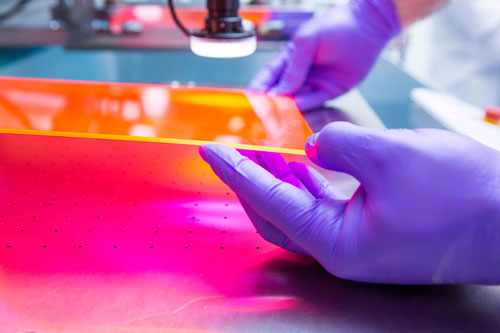Molecular Engineering integrates molecular-level science and engineering to drive new technologies that can address urgent societal needs in sustainable energy and resources, and human health. Research at the UW Molecular Engineering & Sciences Institute is centered around two main themes: biotechnology and clean technology.
Our researchers are working to realize the full potential of these technologies through advances in molecular science and engineering capabilities in conjunction with advances in computational design, artificial intelligence, and machine learning.
The era of -omics, the large-scale study of genes, RNA, proteins and their interactions is providing a treasure trove of new therapeutic and diagnostic opportunities and approaches. In order to convert these opportunities into drugs and personalized medicines, sophisticated molecular engineering tools and techniques are needed. To that end, researchers at MolES are engineering: nanoparticle scaffolds for vaccines for global health, drugs that utilize RNA and gene editing techniques, novel delivery systems for the diagnosis and treatment of brain diseases, molecular imaging and new diagnostic modalities for early disease detection, and molecular components that can be used in the development of cell therapies.

The future of our planet depends on engineering sustainable solutions to urgent energy, materials, manufacturing, and natural resource challenges associated with climate change. MolES researchers are engineering new materials for energy harvesting and conversion, molecular assemblies for renewable manufacturing processes, efficient battery technologies, and clean catalyst technologies.